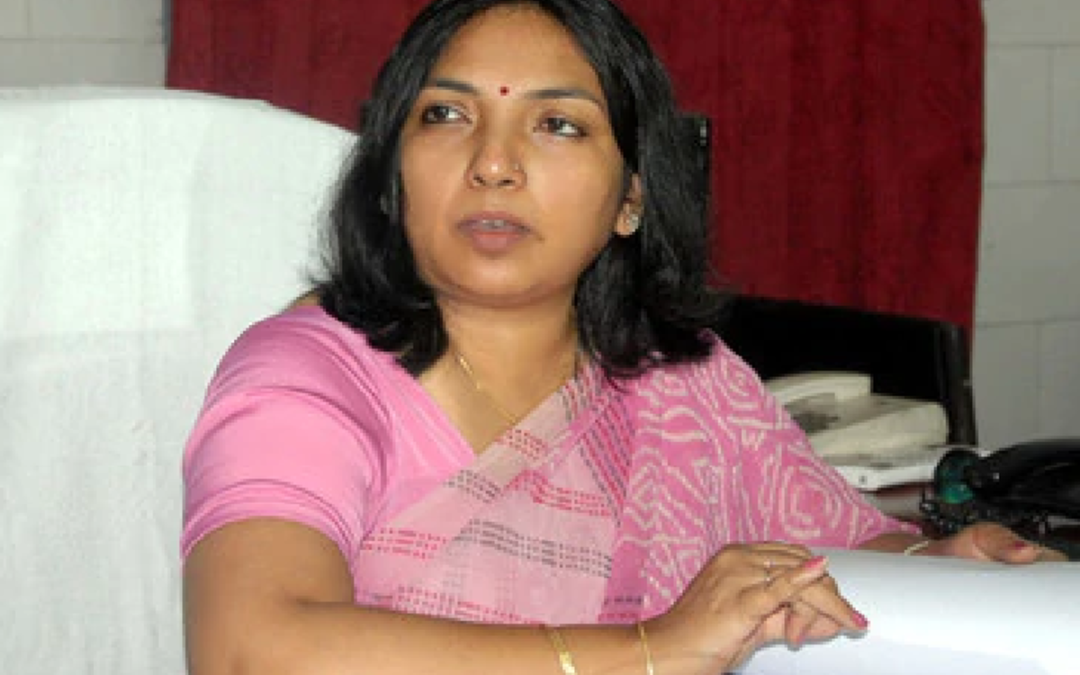Nidhi Khare, Consumer Affairs Secretary
Khare advised e-commerce entities to conduct a self-audit and avoid using dark patterns, which include tactics such as false urgency alerts, hiding negative reviews, subscription traps, and bait-and-switch pricing.
The government is cracking down on e-commerce entities using “dark patterns”, deceptive design tactics that manipulate consumers into unintended purchases or subscriptions.
Speaking with ANI, Consumer Affairs Secretary Nidhi Khare warned that such practices will be treated as unfair trade and face legal action.
“AI can be used mischievously to create propaganda and misinformation. E-commerce entities are using all kinds of dark patterns like not highlighting the bad reviews,” Khare told ANI on Tuesday, adding that “you must be aware that the Department of Consumer Affairs has brought out guidelines against the use of dark patterns.”
Khare advised e-commerce entities to conduct a self-audit and avoid using dark patterns, which include tactics such as false urgency alerts, hiding negative reviews, subscription traps, and bait-and-switch pricing.
“In case someone is found to be using dark patterns, it will be treated as an unfair trade practice, and the law will take its own course,” she said.
The department has advised e-commerce entities to sign a safety pledge whereby they themselves should make sure, through the use of technology, that any harmful or any product which is regulated or prohibited should not be sold on the platform.
Khare warned of strict action, including raids, against the violators.
“If that is being found to be selling, it is something which e-commerce entities need to be very, very careful. You must have seen how, in their warehouses, several raids have taken place and such products have been found which were not of the required standards,” she said.
From time to time, the department held meetings with all the e-commerce entities regarding this situation and also tried to create awareness against such malpractice, she said.
Dark patterns also include not posting bad reviews or not highlighting them, she said.
“Earlier, even if the consumer is giving a bad review for any product, the entity would not publish it or would publish it towards the end of it. And consumers can’t go through the entire chain of all the reviews, and then most of us are basically relying on what the entity wants the consumers to show,” she said.
The Department of Consumer Affairs issued guidelines in November 2023 identifying 13 specific dark patterns. 11 notices have been issued for dark pattern violations, including to companies like Zepto, Uber, and Ola.
“People rely on such reviews that they get on any online portal if they are buying food, shoes, footwear, products of well-being or wellness products. Chances are there that the consumers may get duped by the use of reviews that are not truthful, but are fake or paid reviews,” added Khare.
Talking about the development in the legal metrology in business and consumer protection, she said that the department is trying to see how there is a reduced compliance burden with the decriminalisation of various offences.
“We would want the dealers, the manufacturers or the sellers, all these people, to comply with the quality and the quantity. Legal metrology basically is an assurance of quantity and we will try to come up with such systems which can help in reducing the compliance burden to all these people,” she said.
She said the department is seeing that GST cut benefits are passed on to consumers.
“We are basically assuring that the reduced GST benefit should go to the consumers. We are encouraging all the trade organisations, major ones like FICCI, CII, CAIT and such other associations to proactively ensure that the benefit of this reform GST should go on to the consumers,” she said.
Global AI ethics standards in works will be adopted once finalised
With artificial intelligence increasingly permeating daily life, global standard-setting bodies are deliberating on frameworks for its ethical use, Consumer Affairs Secretary Nidhi Khare said on Wednesday.
“Indian experts are in the international standards-setting committees. Once the global standards are framed, they will be adopted by the countries, including India,” Khare told PTI on the sidelines of a PHDCCI conference on harnessing AI to combat fraud and counterfeits in the retail and e-commerce sector.
She said that 39 global AI standards already exist, while 45 more are in the process of being developed.
At the ongoing International Electrotechnical Commission (IEC) meeting, discussions are focused on preparing standards for responsible, inclusive and ethical use of AI, she said, addressing the event.
“We have 39 standards internationally. What is ethical use? This was debated internationally… Who do we call safe, fair? Who do we call unsafe, unethical use of AI?,” he said.
The secretary emphasised that many Indian experts are leading these international organisations and shaping global AI standards.
“With that, governments will be forced to come out with legal frameworks so that we can save our consumers from getting manipulated, cheated,” she said.
Expressing concern over AI’s potential for misuse, Khare said, “Have you all seen how AI has been spreading propaganda? It is absolutely unacceptable behaviour.”
She described AI as “a very big challenge in today’s world,” noting that the technology surpasses human intuition regardless of consumer awareness or productivity levels.
“You might think that AI is unrealistic. But if you think that AI is unrealistic, then it already has a very cascading impact. The more it is stopped, the more it will have a cascading effect.”
Despite the challenges, Khare acknowledged AI’s positive contributions, particularly in social media platforms and innovation.
“Social media and platforms are all based on AI. It is a good innovation. It is a creative innovation,” she said.
The conference highlighted the dual nature of AI technology — its potential for combating fraud in the retail and e-commerce sectors while also posing risks if used unethically.
As global standards take shape, India’s active participation in international committees positions the country to influence how AI governance evolves worldwide.

